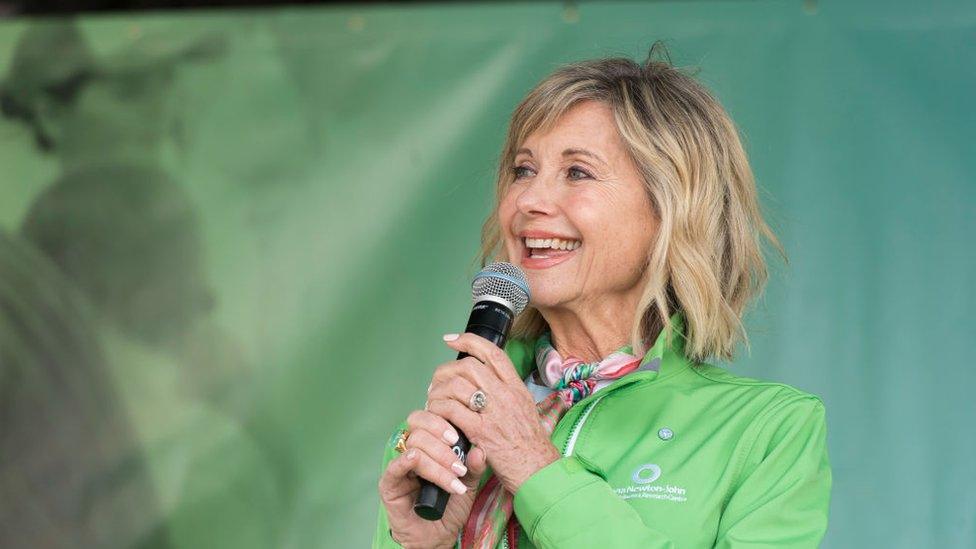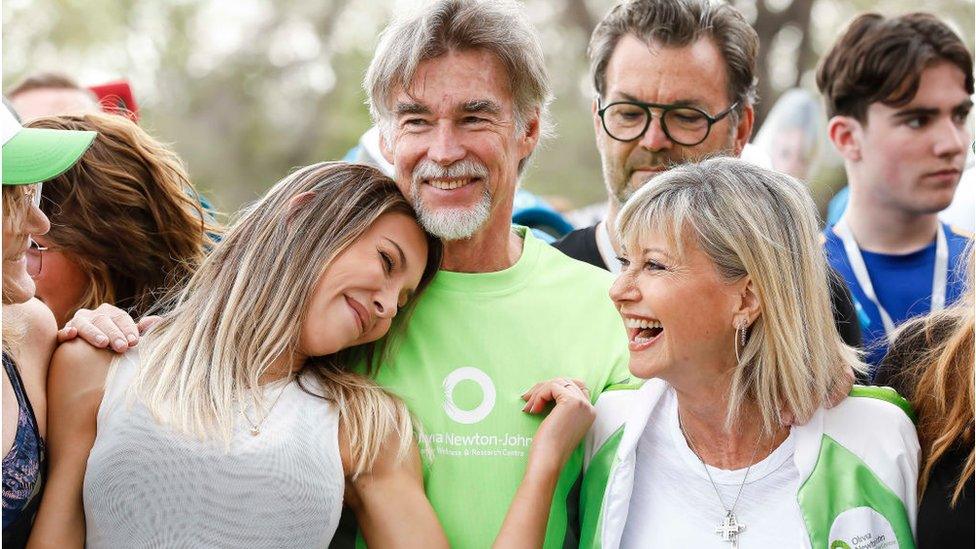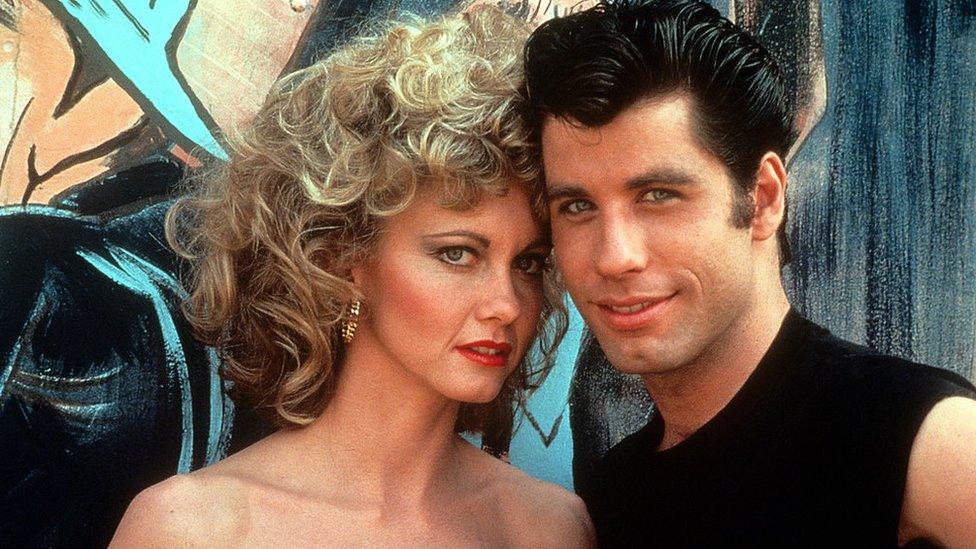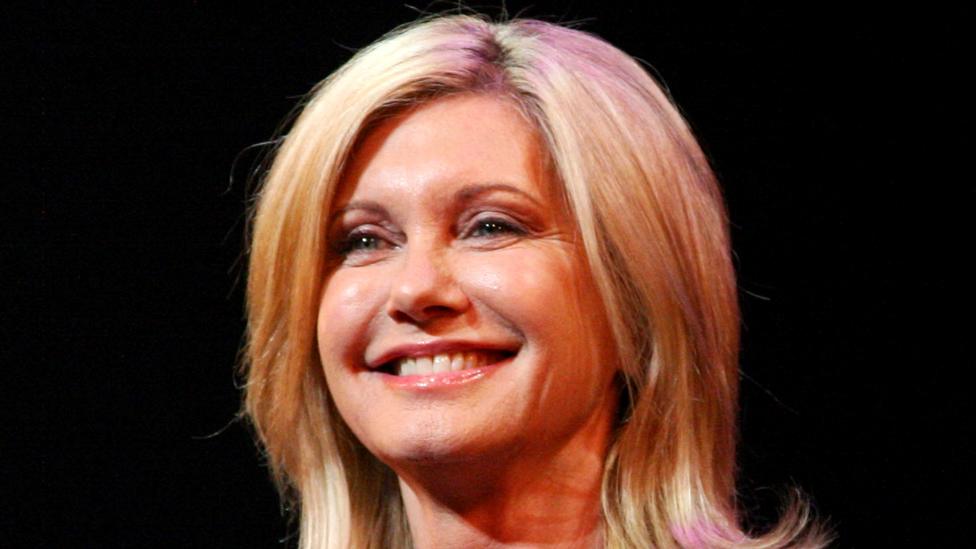Olivia Newton-John's cancer-research legacy
- Published

Olivia Newton-John at her annual wellness walk, in 2018
Olivia Newton-John's family has asked people to donate to her cancer-research centre instead of sending flowers.
The singer and actress died at her home, in California, surrounded by her family and friends, on Monday.
She was diagnosed with breast cancer at the age of 44, in 1992, with treatment needed again in 2013 and 2018.
While she will be remembered for her acting and country-music career, the British-born star also led the way in cancer research and treatment.
Allow Instagram content?
This article contains content provided by Instagram. We ask for your permission before anything is loaded, as they may be using cookies and other technologies. You may want to read Meta’s Instagram cookie policy, external and privacy policy, external before accepting. To view this content choose ‘accept and continue’.
Having moved to Australia, with her family at the age of six, she set up the Olivia Newton-John Cancer Wellness and Research Centre, in Melbourne, in 2012.
Beginning as an outpatient facility, it expanded to provide wards and hold patient trials, with six main research programmes, external developing treatments for breast, bowel, gastrointestinal-tract, lung, skin, liver and brain cancer.

With daughter Chloe Lattanz and husband John Easterling at the 2019 Olivia Newton-John Wellness Walk and Research Run
Newton-John also advocated for cancer patients, focusing on their wellness and emotional support.
Breast Cancer UK head Thalie Martini said the Grease star had left an "incredible legacy".
The charity was "particularly grateful for Oliva Newton-John's commitment to awareness raising of this devastating disease".
If people were more aware of the early signs of breast cancer, 17,000 lives could be saved in the UK each year, it said.
What to look for
a new lump or area of thickened tissue in either breast
a change in size or shape of one or both breasts
fluid discharge from nipples
a lump or swelling under the armpits
a change in the look of skin, such as a rash or dimpling, or nipples
scaly or itchy skin around the nipple
And they could cut the risk of developing the cancer, with small steps such as "eating well, keeping physically active, limiting alcohol intake, minimising exposure to harmful chemicals, regularly checking their breasts and attending scheduled screening".
Newton-John used cannabis oil to treat her pain, sourced from her partner's farming business.
Just after she had discovered the cancer had spread to the base of her spine, she told the Cable News Network (CNN), external she was "very lucky" to live where cannabis was legal.
"My dream is that in Australia soon it will be available to all the cancer patients and people going through cancer or any kind of disease that causes pain," she added.
According to Macmillan Cancer Support, external, there is no scientific proof cannabinoids can treat cancer - but research is continuing in the UK and around the world.
Newton-John also advocated herbal remedies, used holistic treatments such as acupuncture and massage therapy alongside treatment and adopted a vegan diet, external while having chemotherapy.
Charity Cancer Research UK says there is insufficient reliable evidence, external to use herbal remedies to treat cancer - although many take them to alleviate anxiety and relax.
- Published9 August 2022

- Published9 August 2022

- Published8 August 2022
